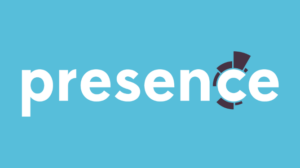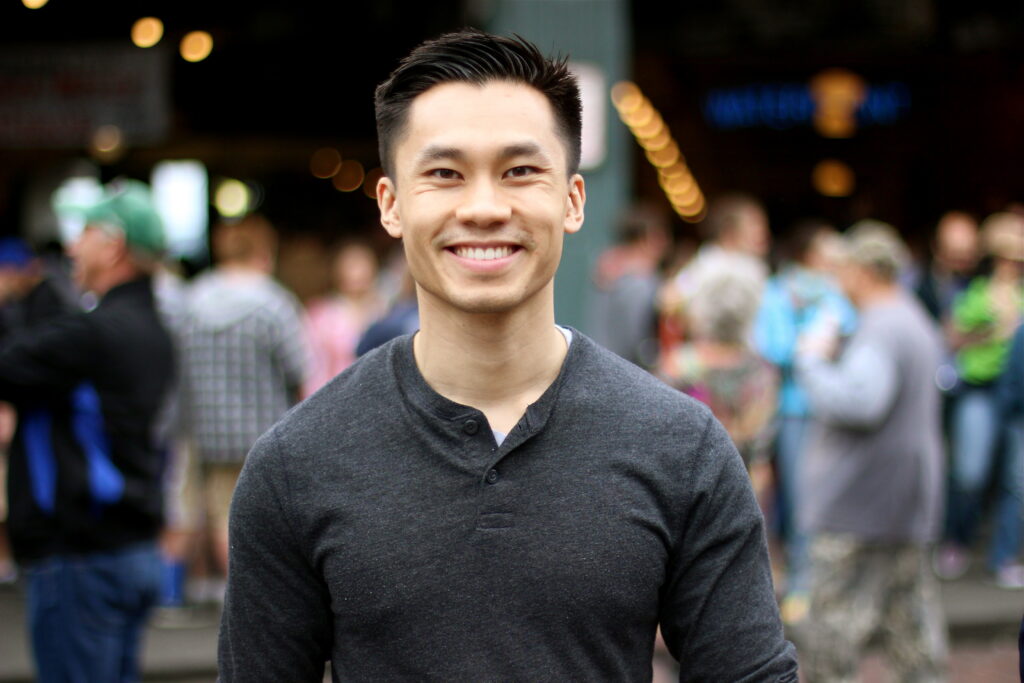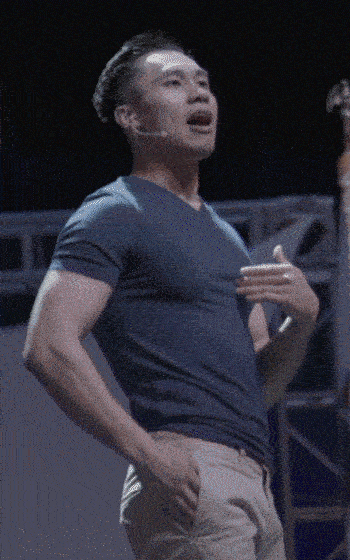
Presence held a webinar that featured guest speaker Justin Brown, Resident Director at West Chester University, PA, who shared insights on how he booked 56 celebrities for his virtual speaker series events. He shined a light on some valuable tips for those who are interested in creating something similar for their online events.
Meg Sunda, Digital Education Creator at Presence and Happy Hour host, asked Justin to explain how he decided on hosting a speaker series for his college students.
Justin explained that COVID-19 was a big wake up call and that brought about the sudden need to figure out how to do things online. Initially he set up a program online called Block Party that did not have the turn out he was hoping for. After spending time thinking about what would make students want to join in on an online event, he realized that he, himself, would join if there was a celebrity as a guest speaker. This prompted him to start looking for celebrity speakers that might draw students in.
He decided to create a Speaker Series event where he would invite different celebrities to speak and interact with students for 10-15 minutes. He reached out to 56 people on the first day with no response. The second day he received a response from Deon Cole with questions about the event. It was through this conversation with Deon that Justin gained clarity on a few of the important factors to consider when planning these events:
- Know how many people will be attending. Know the cap for the amount of attendees so that speakers know their audience size.
- Know who will be on the call. By having a limited number of spots available and having people register allows you to keep track of all participants.
- Know the format for participants asking questions and interacting. Justin had everyone on mute and when people had questions they could post them in the Zoom chat box and wait to be called on. When a person was called on they would be unmuted so they could ask their question and interact with the speaker.
Justin reached out to a wide variety of potential speakers such as athletes, singers, game show hosts, voice actors, newscasters, musicians, actors/actresses, and more. He clarified that not all were celebrities, some were people who held high interest jobs, such as a man who worked in the Secret Service and served under President Obama and the current administration. He explained that the idea was to expose students to people who work in high profile jobs that might be different than what they are accustomed to or normally have access to.
He also went further and asked celebrities if they knew of anyone else that would be interested in being a potential speaker. He also reached out to people whom he met in the past and asked if they had interest in the speaker series. Taking it a step further, those who did agree to speak, he invited them to sit in on any upcoming events they might be interested in. He said it happened twice, where celebrities sat in on the speaker series while other celebrities spoke.
Tips
- When thinking about who you might want as a speaker, think beyond your own interests, get feedback and ideas from others, and think about what speakers can do that will provide academic pieces to your online event. For example, Justin had a professional chef from the FoodNetwork who gave a live cooking demonstration. He also had a few speakers from the show Orange is the New Black, and they spoke about issues around prison reform, equality, and what it means to be a woman. Students can then type in/ask questions and have moments to interact with the speaker. This provides a valuable experience to students.
- Find out who represents the speaker you want to invite and reach out to them.
- Ask individuals/speakers to send their official bios, their own press. Justin cautions using information off of wiki bios and official websites as they are not always accurate. As an example he explained that he took information from a wiki bio and used it in his introduction of a speaker, who then informed him some of the information was not accurate. He also cautioned that agents are not always the best option to turn to when gathering press as they may not have accurate information either.
- Get other departments involved. Figure out which departments on campus might benefit from particular speakers, that way they can do outreach to more students. For example, one of Justin’s guests was a famous news sportscaster, so he reached out to WCU’s communications and media departments to let them know his program might be of interest to their students.
Meg asked Justin to talk about some of the data and numbers from the results.
Justin explained that he used mostly Zoom as the format for his speaker events. As far as some of the numbers, he retained 56 speakers, 396 WCU students (some of whom could have been repeat participants), 26 faculty and staff, 95 guests, non-WCU members attended as well. This resulted in 517 people who registered, however, because people were attending from home, the number does not include all of the friends and family members that also hopped onto the event, they were also a big part of the calls as well. He also added that the level of interaction wasn’t lessened because of the event being on a virtual platform.
Advice and tips for those who want to do this work
It takes a lot of time. Justin said that he put in approximately 90 hours of his own time to make this happen, but he didn’t do it alone, he had a team. He emphasized the importance of looking at what transferable skills you have that you can translate to do other things, to refine skills, pull something out of yourself that can make you more marketable. He also stressed don’t do it by yourself, get help, use skill sets from others. Their team was made up of a number of people, some of whom reached out to find leads, a graduate student who made all of the ads, faculty who helped in other ways, and several others. He also networked by reaching out to friends who he thought might have leads to contacts. He emphasized that it is a team effort and that “if you do it by yourself, you’re not going to have success.”
Meg mentioned the importance of meeting students where they are at, how to best engage them, and think about what programming will look like in the future. There are perhaps benefits to all kinds of programming and they can all be engaging. Justin reflected on the changing times and the idea of switching over to more virtual events, even when people return to campus, saying that if you can get everyone in one space and host speakers on zoom, it is more financially feasible not having to pay for the expenses of flying someone out, the cost of hotels, food, transportation.
He added that programming is changing now and it may not go back to what it looked like before. His last piece of advice was to look beyond your own interests to things you might normally look for when planning a program; “figure out what you’re planning to do and then make it better. And then get your colleagues on board.” “This may be the new way to do programming.” events


